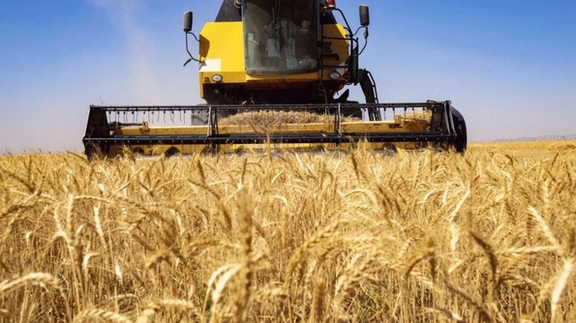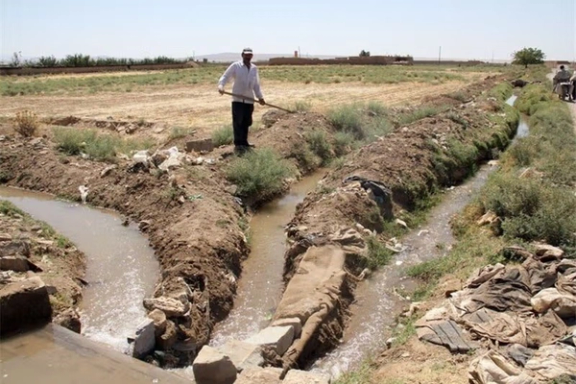Government wheat purchases plunge as drought hits Iran

Government wheat procurement in Iran dipped by over a third this year due to declining production, officials said on Thursday, as drought and financial woes continue to plague the economy.

Government wheat procurement in Iran dipped by over a third this year due to declining production, officials said on Thursday, as drought and financial woes continue to plague the economy.
In Iran, the term “guaranteed purchase of wheat” refers to a government program whereby the Government Trading Corporation (GTC) commits to buying wheat from domestic farmers at a pre-established, fixed price.
The government says the policy shields farmers from volatile market prices and ensures a stable income by offering a predictable price while also enabling the government to manage reserves of the staple crop and guarantee supply.
However, state-guaranteed purchases had dropped to 700,000 tons, Attaollah Hashemi, head of the National Wheat Farmers Foundation, told ISNA news agency on Thursday.
'Risks ahead'
“This year’s guaranteed purchases have decreased by 35 percent compared to last year, a decline that is a direct result of reduced production caused by drought and insufficient rainfall,” he said.
The government still owes some farmers payments for wheat deliveries but promised settlement soon, Hashemi added. He warned that “reliance on wheat imports could bring serious risks for the country.”
According to US Department of Agriculture data, the country's wheat production for the 2024/25 season is projected at around 16 million metric tons.
Despite these figures, Iran’s import needs can vary: the FAO projects wheat import requirements for the 2024/25 marketing year (April–March) at 1.3 million tons.
However, due to drought-induced production shortfalls, imports are expected to rise in the current calendar year to about 4.5 million tons, according to state media.

Water crisis
Agriculture Minister Gholamreza Nouri Ghezaljeh recently described the situation as unprecedented. “From the perspective of food security, we are in the most difficult circumstances,” he said, citing poor economic conditions and what he called the worst droughts in memory.
Production had fallen by 35 to 40 percent due to energy shortages and irrigation problems, Ghadamali Bourbour, deputy head of the Wheat Farmers Foundation, said in late August.
“This decline is rare in Iran’s agricultural history,” he said, adding that the trend would also push up dairy and meat prices.
Despite repeated water cuts across cities, official data show that 80 to 90 percent of Iran’s consumption still goes to agriculture, much of it under traditional methods.
With procurement falling and drought intensifying, the government faces rising pressure to reform or risk deeper food insecurity.